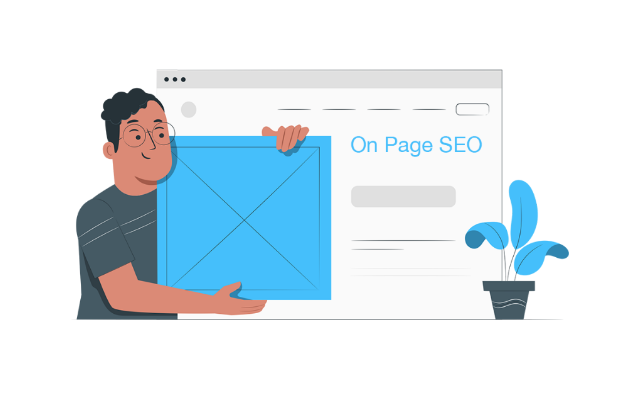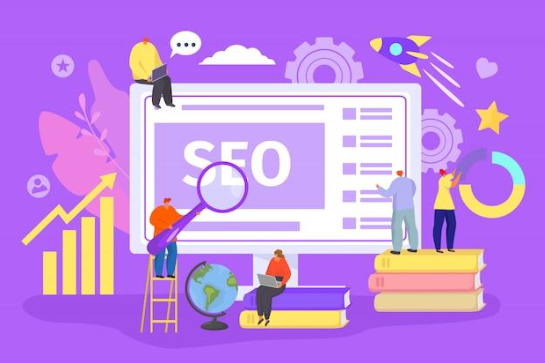Understanding On-Page SEO: Boosting Your Website's Visibility

In the competitive world of digital marketing and online businesses, search engine optimization (SEO) has become crucial to succeed and stay ahead of the competition. Regarding your website's search engine optimization your website, one of the fundamental strategies is on-page SEO. This blog will explore what on-page SEO is, its importance, and practical tips to implement it effectively.
What is On-Page SEO?
The practice of making individual web pages more search engine friendly and likely to attract organic on-page SEO, often known as on-site SEO, is the process of increasing traffic. On-page SEO, as opposed to off-page SEO, which concentrates on external aspects like social media and backlinks, is all about improving features that are already present on your website to increase its exposure and relevance to search engines.
The Importance of On-Page SEO
On-page SEO plays a pivotal role in the overall SEO strategy of your website. By optimizing your pages effectively, you can:
Improve Search Engine Rankings: By fine-tuning your website's content, keywords, and structure, you can signal to search engines that your pages are relevant to specific user queries, resulting in higher rankings.
Enhance User Experience: On-page SEO benefits search engines and your site visitors. User satisfaction and engagement are better thanks to a well-optimized website that makes it simple for visitors to browse, discover what they're looking for, and have a smooth user experience.
Increase Organic Traffic: Better search engine rankings and improved user experience can translate into increased organic traffic, bringing in more potential customers and leads.
On-Page SEO Elements
Now, let's dive into the key on-page SEO elements that you should focus on:
Keyword Research and Implementation: Determine the words and phrases that are pertinent to your content and intended audience. Incorporate these keywords naturally in your page titles, headings, meta descriptions, and throughout the content. However, avoid overstuffing keywords, as they can be penalized by search engines.
High-Quality Content: Create valuable, engaging, and original content that provides useful information to your audience. Content that answers users' questions, solves problems, or offers unique insights is more likely to rank higher in search results.
Page Titles and Metadata: For each page, create intriguing and informative titles and meta descriptions. These elements serve as snippets that appear in search engine results, influencing whether users click through to your website or not.
URL Structure: Ensure your URLs are clear, concise, and contain relevant keywords, making them user-friendly and understandable for both search engines and users.
Heading Tags (H1, H2, H3, etc.): Use proper heading tags to structure your content and emphasize the main points. This helps search engines understand your content's hierarchy and improves visitors' readability.
Image Optimization: Optimize images by reducing their size without compromising quality, using descriptive alt tags, and including relevant keywords where appropriate. This enhances the accessibility of your content and can also lead to better image search rankings.
Link pertinent pages on your website together using internal links. Internal linking helps search engines discover more of your content and establishes a hierarchical structure that strengthens your website's authority.
On-page SEO is fundamental to optimizing your website for search engines and enhancing user experience. You can improve your website's visibility, search engine rankings, and organic traffic by focusing on keyword research, high-quality content, proper page elements, and user-friendly URLs. Keep in mind that effective SEO is a continuous process, so keep an eye on your progress and make any required modifications to stay on top of the ever-evolving digital world. With the right on-page SEO strategies, your website can attract more visitors, achieve higher rankings, and ultimately achieve its online goals.
Share on
Similar topics:
Similar blogs

SEO Evolution: Adapting to Search Engine Algorithms

SEO Decoded: From Algorithms to Page Rankings
Grow Your Referral and Organic Traffic
Choose a style, use sections to build pages and lastly, add your copy. It only takes a few clicks toget your site ready to go.